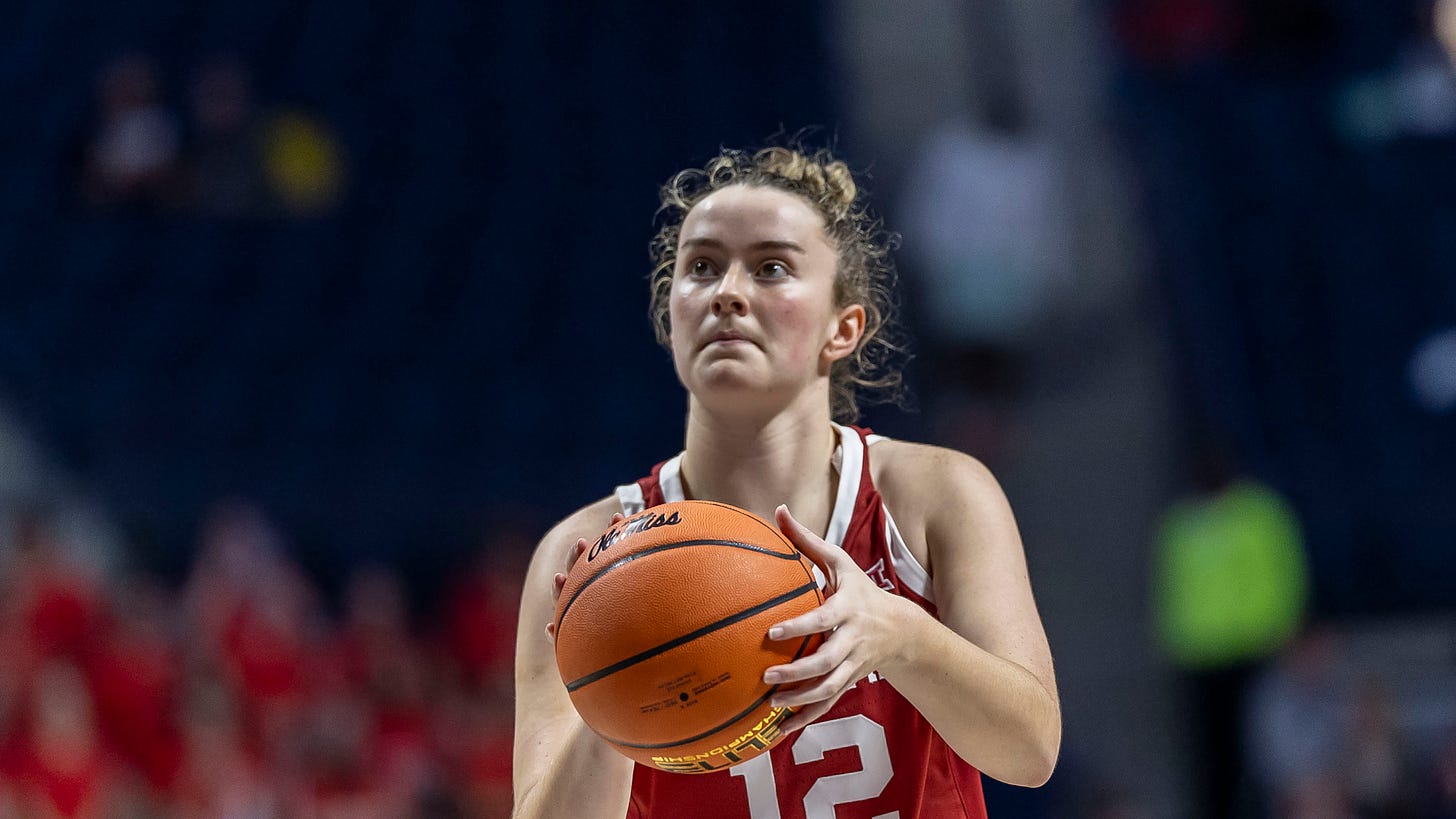Forgettable Big 12 tourney leaves Sooner women to build new momentum from scratch

After going on a conference run for the ages, securing the program’s first outright regular season conference championship in 18 years and putting themselves in position to receive a top-16 overall NCAA tournament seed, the Oklahoma women are, instead, coming off a pair of scary bad performances at the Big 12 tournament.
It’s alarming because it happened at all, that a squad that had been scoring in the 80s and 90s suddenly failed to post 70 in consecutive games.
That Monday, in its 85-68 Big 12 tourney semifinal loss to an Iowa State squad that occasionally counted five freshmen on the court, OU was stuck on 26 points until 4:19 remained in the third quarter.
That, most damning of all, it wasn’t the mere fact shots weren’t falling, but that no Sooner, for the longest time, offered any urgency or emotional response designed to turn OU’s fortunes around.
Though point guard Nevaeh Tot put up seven shots and five 3-point attempts by the half, she was turning down open looks early in the shot clock at a time the Cyclones continued running away on the scoreboard.
Though Payton Verhulst wound up with 23 points, she was not aggressive when handed small openings before the Sooners found themselves down 20 points. Nine of her 16 attempts and 18 of her points came over the last 14:11, at which point OU already trailed by 25.
All of it happened while co-conference player of the year Skylar Vann suddenly couldn’t hit a shot, going 8 of 24 over two conference tourney contests after shooting an even 50 percent during the 18-game Big 12 regular season.
Nor did coach Jennie Baranczyk do her part to step in the way of her team’s struggles, at no point calling timeout to corral her team, stop the action and, perhaps, stem Cyclone momentum.
Hard to believe, yes.
Yet, a scouring of the contest’s official play-by-play reveals the Sooner coach did not even spend a 30-second timeout to slow the blowout before it was complete.
The nearest thing she did was sub out her entire starting five 2:20 into the second half only to bring the whole group back 71 seconds later. But that’s not the same thing as stopping the game, challenging your players and forcing your tormentors to take a break.
Baranczyk’s never called many timeouts, but it’s March and though the NCAA tourney’s the big enchilada, pretending like the conference tourney matters, too, is good practice.
Given the Sooners' body of work, perhaps none of it would be so, so alarming but for this pesky fact:
As good as OU has been over three regular seasons under Baranczyk’s direction, it's still looking to reach the Sweet 16 for the first time since 2013, a destination the program's already missed twice under Baranczyk.
Despite earning a No. 4 seed and home court two years ago, OU narrowly slipped past IUPUI 78-72 in the opening round and two days later fell by an embarrassing 44 points to No. 5-seed Notre Dame.
A year ago, also after falling to lesser-seeded Iowa State in Kansas City, the No. 5-seed Sooners showed life in a convincing win over Portland State only to find themselves down 41-28 at the half against fourth-seed UCLA. Though a furious comeback followed, the Bruins pulled away to prevail 82-73.
Kelvin Sampson, before his Sooners won back-to-back conference tourneys in 2002 and 2003, used to talk about how the conference tourney was never that important, for an early conference loss could lead to a more fresh, rested and ready squad for the Big Dance.
But even if such a contrarian theory holds water, you don’t want to do what the Sooners did Saturday and Monday at T-Mobile Center, when they were not remotely themselves.
“I’m so happy we didn’t totally throw in the towel and did put up a fight in the last five minutes of the game, but [it’s] disappointing,” Baranczyk said.
The Sooners actually did more than that, scoring 42 points over the game’s final 14:19. Yet, all that really did was serve as a reminder of what might have been had OU come ready to play with a coach willing to impose herself rather than simply believing the tide would turn until it became too late.
“I don’t think we responded well or started well or finished well,” Baranczyk said. “At the same time, I’m excited to be able to see what we continue to do, because two months ago we didn’t have a future in the postseason.
“Now, we do.”
They certainly do.
Still, it’s too bad they spent two games at the program’s final Big 12 tournament looking more like the team that had no future than the one that still does.
They’re still alive.
They need to pick it up.



